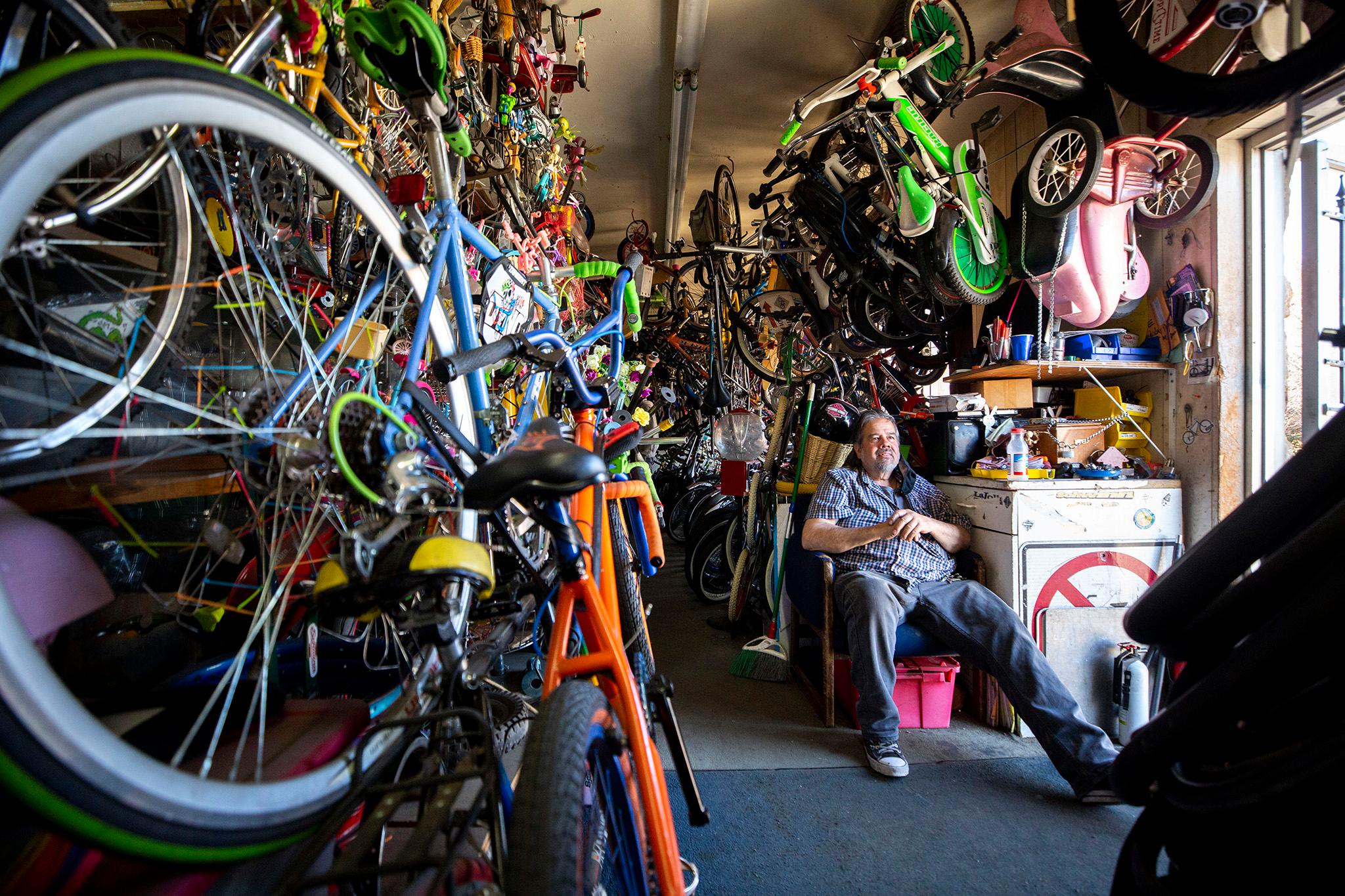Early on in the pandemic, bicycles became hot commodities. Demand skyrocketed as people began looking for ways to stay entertained and fit while they were forced to stay at home. Supply plummeted as international trade and domestic production screeched to a halt. Many bike shops simply didn't have inventory for the pedal-hungry public.
But Thomas Padilla had plenty to spare.
He's been accumulating two-wheeled rides in his One Stop Bike Shop on Morrison Road for years. Frames, wheels, handle bars and spare parts consume nearly every inch of his shop. Everything from a classic cruiser to chromed-out low-riders are buried in the small space. Building bikes is his passion, his art, and he was ready when Denverites from all over town began pilgrimages to the westside to get their fixie - or gearbox - fixes.
JoAnna Cintron, executive director of the Re:Vision co-op and business incubator next door, said she noticed outsiders flooding in.
"People that looked like they came from Sloan's and Highland and stuff, just desperate to find a bicycle," she recalled.
"I had bikes," Padilla said.
Padilla and Cintron were two of ten business owners we spoke to along Morrison, on the block between Meade Street and Custer Place that's at the heart of Westwood's Mexican cultural district. We're trying to understand how people who make their livelihoods in Denver have fared over the last year.
All six businesses on Welton Street, which we profiled last week, received some sort of loan or grant in the worst of the pandemic. But the story was a little different on Morrison Road. Four of the ten people we spoke to said they did not receive emergency support, and many of them told us access was an issue in this area dense with Latinx-owned businesses.
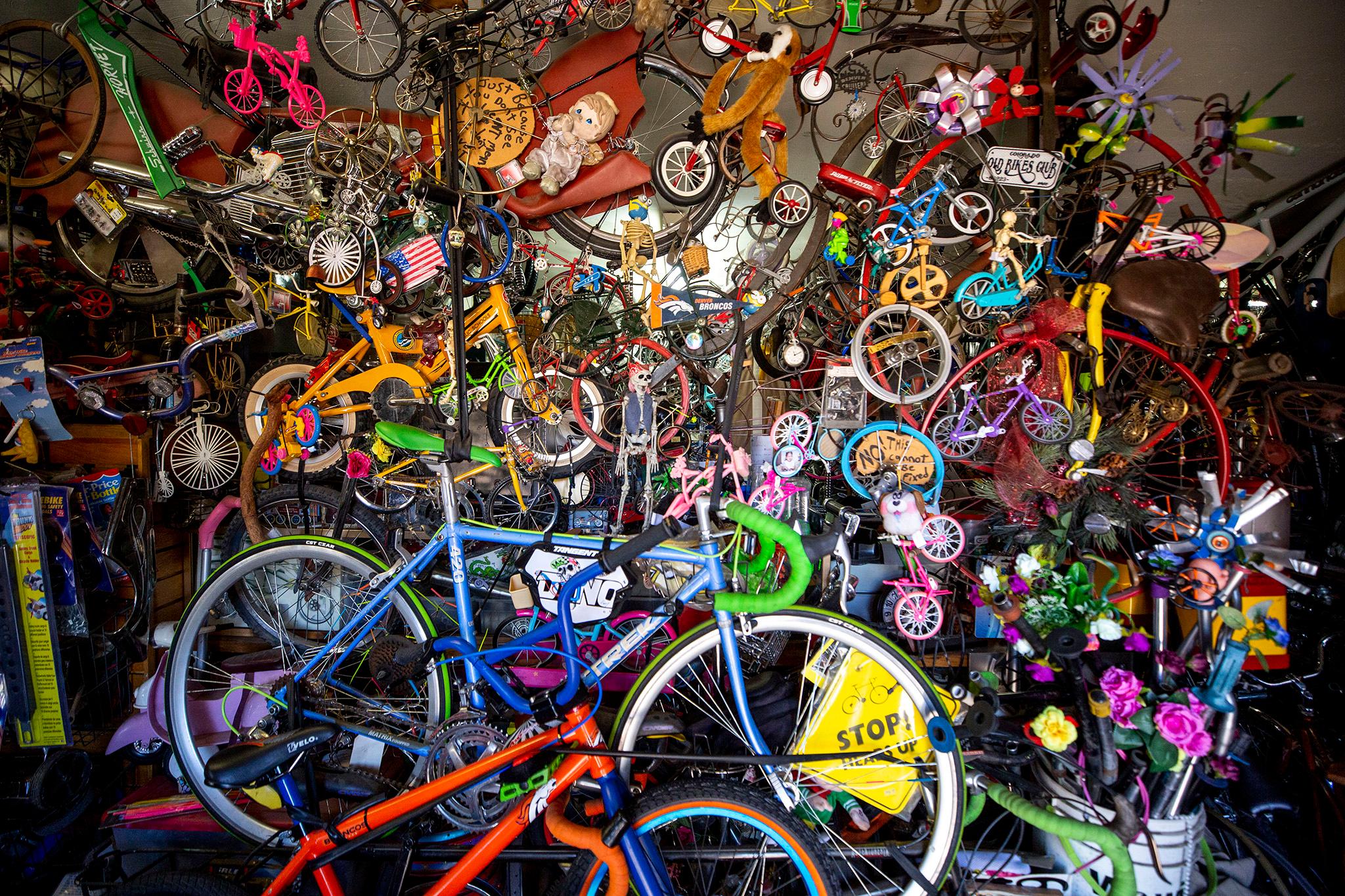
There are a lot of reasons why business owners didn't get cash support.
Padilla said his revenue was up about 10 percent in 2020 from the norm, so he simply didn't need it. He was also one of four renters on the block who didn't get or need a break from his landlords.
"They're hurting too," he said.
Others would have loved some extra help.
Raul Martinez and Olivia Batista Verdugo took over the tire shop on the block's northeast end in June, during the height of lockdowns. The couple moved from southern California in April and, with Martinez's expertise and tools, hoped to secure an economic foothold in their new home. Things were slow, so Martinez said they looked into programs like the federal Payroll Protection Program (PPP). But their business was too new - they didn't have a tax record that would show losses - so they weren't eligible. They've just been hanging tight, waiting for their fortunes to improve.
"I think it's going up a little bit, slowly but surely. Not as much as we expected, but it's going up," Martinez said.
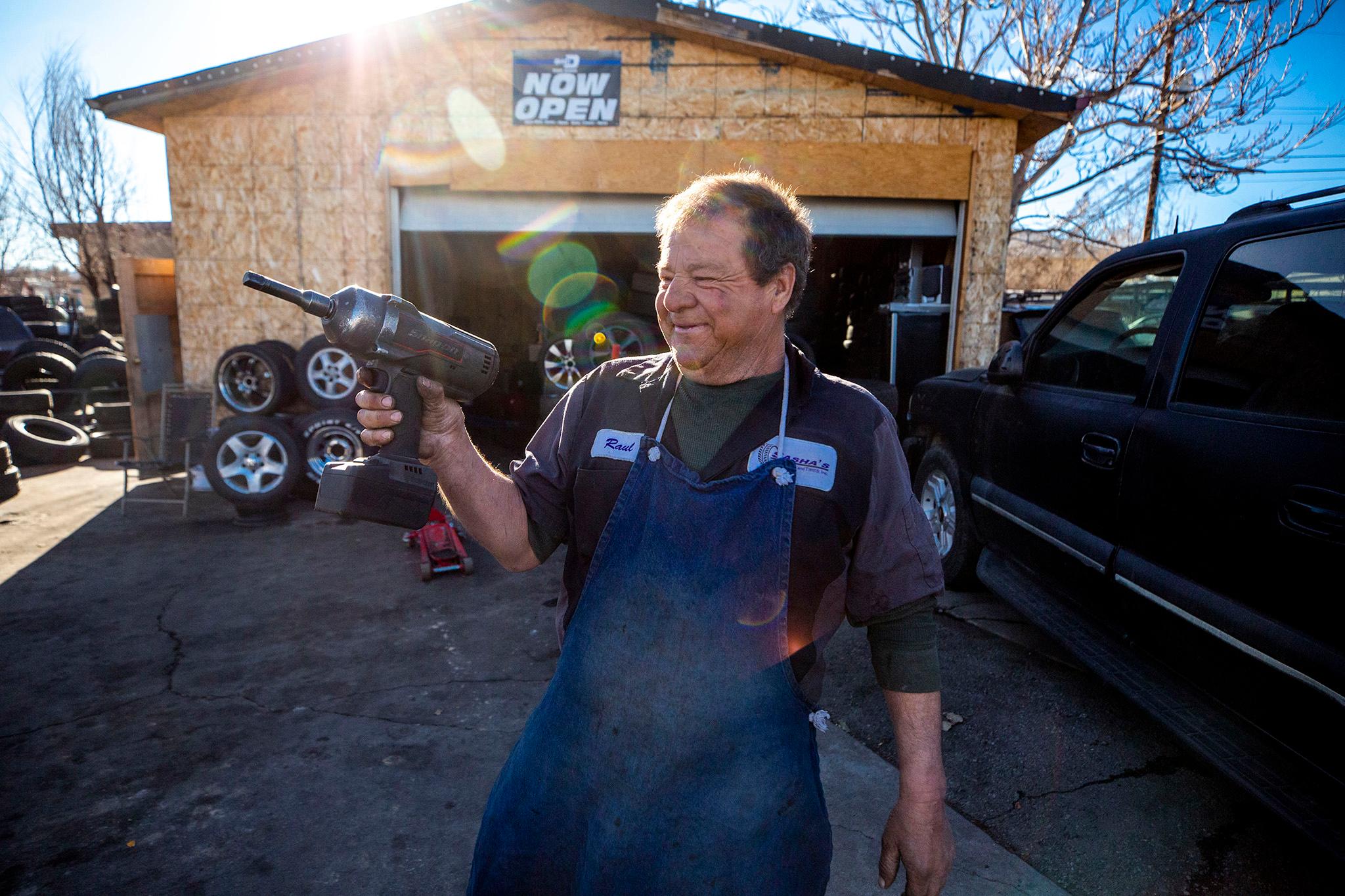
Monica Villalobos was in a similar boat. Construction on her Cabrona Coffee Company concept, nearby at 6th Avenue and Knox Court, had already started when the pandemic hit. Her community lender, with whom she was supposed to finalize a loan the week after Denver shut down, retracted its support. Forced to upend her plans, she scuttled the location and began recalculating.
In October, Villalobos opened Cabrona as a pop-up in the Cultura Chocolate shop, a tenant in Re:Vision's complex, at 3800 Morrison Road. The arrangement was supposed to be temporary, but when it became clear her own brick-and-mortar location wouldn't become a reality, she arranged to bunk at the chocolate shop indefinitely. Most days, Villalobos can probably be found working next to Cultura owner Damaris Ronkanen.
"I'm like the couch surfer in this space," she laughed.
Like Martinez, Villalobos' business didn't have the necessary tax records to qualify for emergency financial support.
"Being in that gray area just didn't make us eligible for anything," she said. "It pretty much just dropped us off the board."
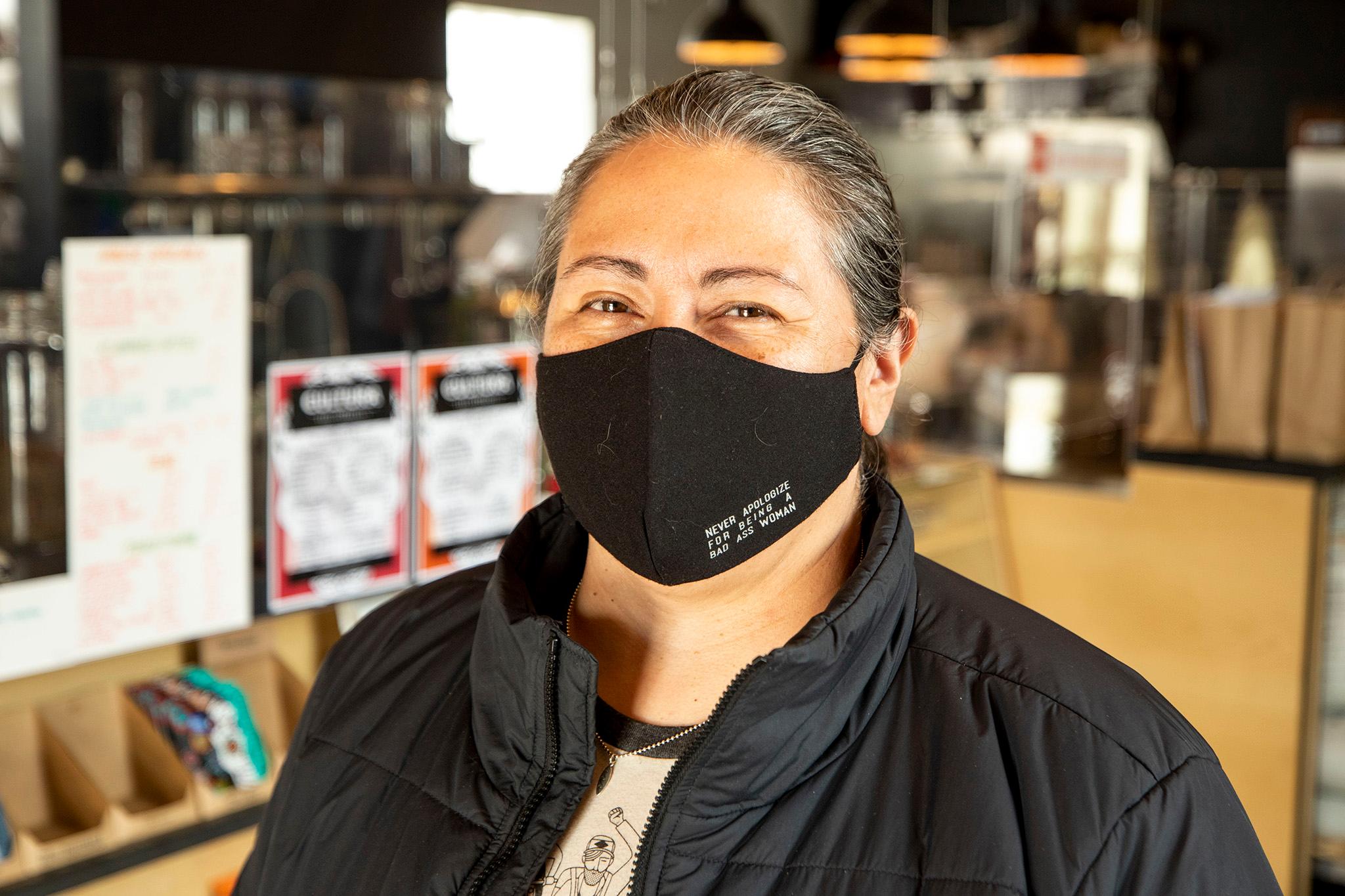
Noe Bermudez, who owns Kahlo's vegan-friendly Mexican restaurant across the street, told us he applied for some grants and loans, but he said those conversations died in his inbox. He applied, he never heard back, and then he was too busy to chase after the money. When we spoke to him back in March, he was cooking meals at his Federal Boulevard location, Tarasco's New Latino Cuisine, and personally rushing boxed meals back to Kahlo's to meet hungry take-out customers.
"You don't know how to react in a pandemic. Your first reaction is: Try to survive. You don't even think about the numbers. You think about your life, about your customers," he said. "It was not easy."
Later on, Bermudez did get a free patio covering, courtesy of the city. It was part of a Denver Department of Transportation and Infrastructure program to support businesses in areas that weren't getting help elsewhere. Instead of wading through dense applications, he said people from the city and his local neighborhood organization approached him directly. (Since he did end up getting some help, we didn't include Kahlo's in our count of businesses that didn't receive a grant or loan.)
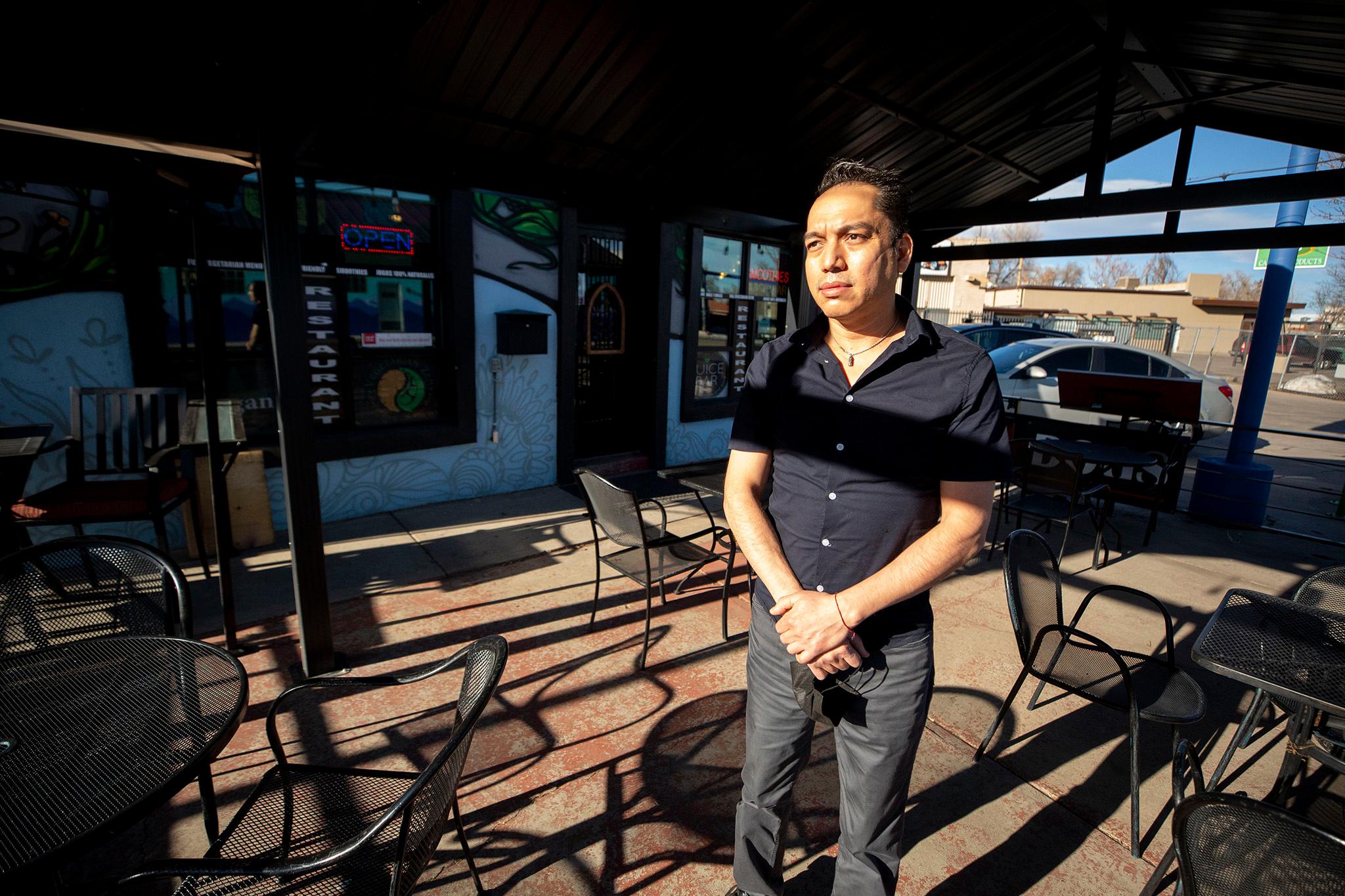
Many of the people we spoke to said resources have always been tough to get on Denver's west side.
Jose Vilchez was the fourth business owner who told us he hasn't gotten financial support during the pandemic. The serial entrepreneur uses Re:Vision as a commissary kitchen for his X'Tabai Yucateco food trailer concept, which he said is one of just a few restaurants on wheels in the nation that offers grub from Mexico's Yucatán Peninsula.
"I did apply for every single one of them," he said. "I've just been working my a** off and putting my money under the mattress."
Vilchez said his mind brims with creativity, so he quickly figured out a way to keep the money coming in. He bought about 200 sheep in Wellington, Colo., and began cooking them up one at a time into traditional barbacoa that he sold by the pound.
He said he also suffered from a scant tax record. He launched X'Tabai Yucateco in October of 2019, so he had no way to gauge a year of losses when the pandemic struck. But when asked why he thought he and others on Morrison struggled to find emergency support, he laughed and pointed to the brown, tattooed wrist sticking out of his sleeve.
"Everybody knows," he said.
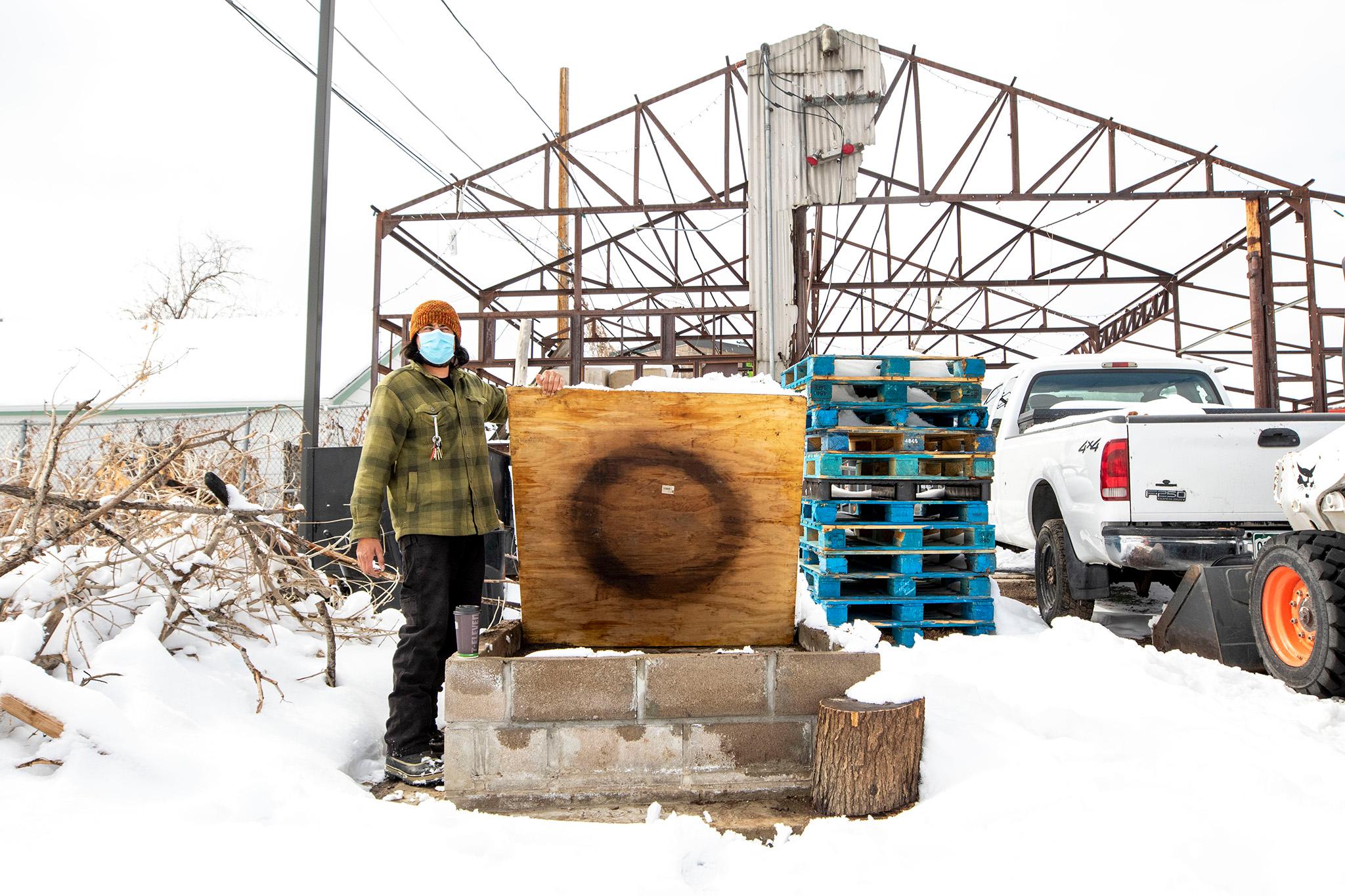
Edwin Sandoval runs Xatrucho, a self-proclaimed culinary "experience" that usually caters and curates private events, that shares space with Vilchez in Re:Vision's commissary kitchen. He did receive assistance from the city and federal Small Business Administration and PPP programs, but he said getting those resources took a strong network.
"If I didn't have business owners who were friends of mine outside of the Latino community, it would have been a little hard to get my hands on the PPP money; figuring out how unemployment works, figuring out essentially how to get funding to stay alive," he said. "I think that some of these programs are not necessarily accessible, or the info doesn't get into neighborhoods like Westwood."
Sandoval said a lot of small-business owners might not have the time to keep their books in the tip-top shape required to quickly jump on those opportunities - or the money to hire accountants. He also said his community tends to be wary of government programs.
"It's about making that push, and it's also about having that familiar face. Someone that looks like the people in these communities to come out," he said. "The Latino community, we come from such a struggle that if someone just comes out and puts $1,000 in front of us, we automatically ask, 'What do you want in return?'"
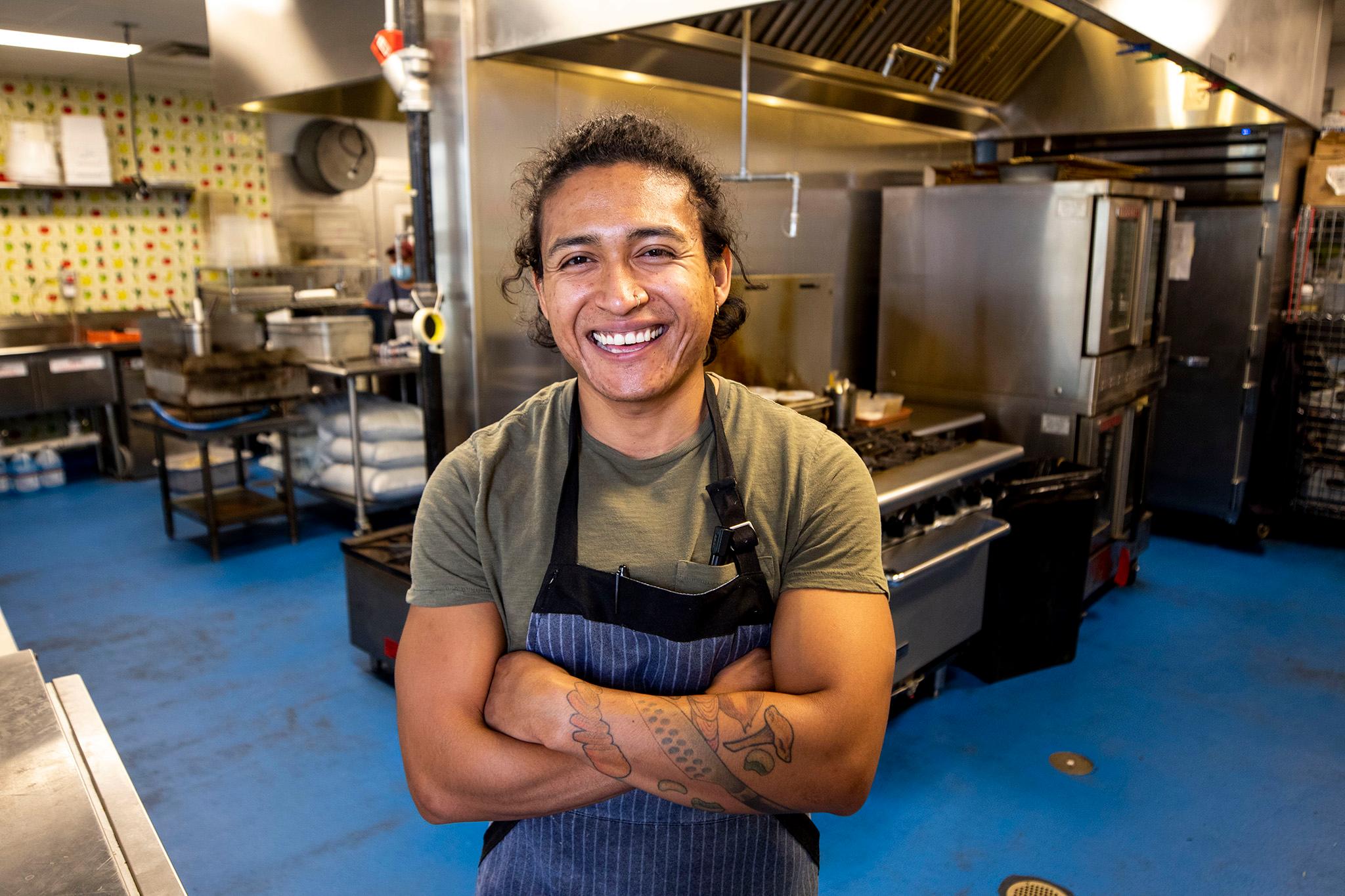
Damaris Ronkanen, the owner of Cultura Chocolate who took Monica Villalobos in after her brick-and-mortar faltered, said that kind of focused approach did make its way to Westwood, but it took a while.
The city handed out about $14 million in grants to local businesses in 2020. When the program launched last spring, some proprietors who felt they were likely to close said the effort was not spread equitably throughout Denver. They feared businesses in places like Westwood were being overlooked during. In August, officials announced Denver's Priority Neighborhood Small Business Fund, specifically to ensure owners in underserved neighborhoods didn't flounder.
Ronkanen said she did get a grant from the city, in its third round of funding.
"I do think they've done a good job of trying to target Westwood. It just took a while," she said. "It took a really long time for it to become accessible, and I could definitely understand that a lot of small businesses just wouldn't have that time available to wait."
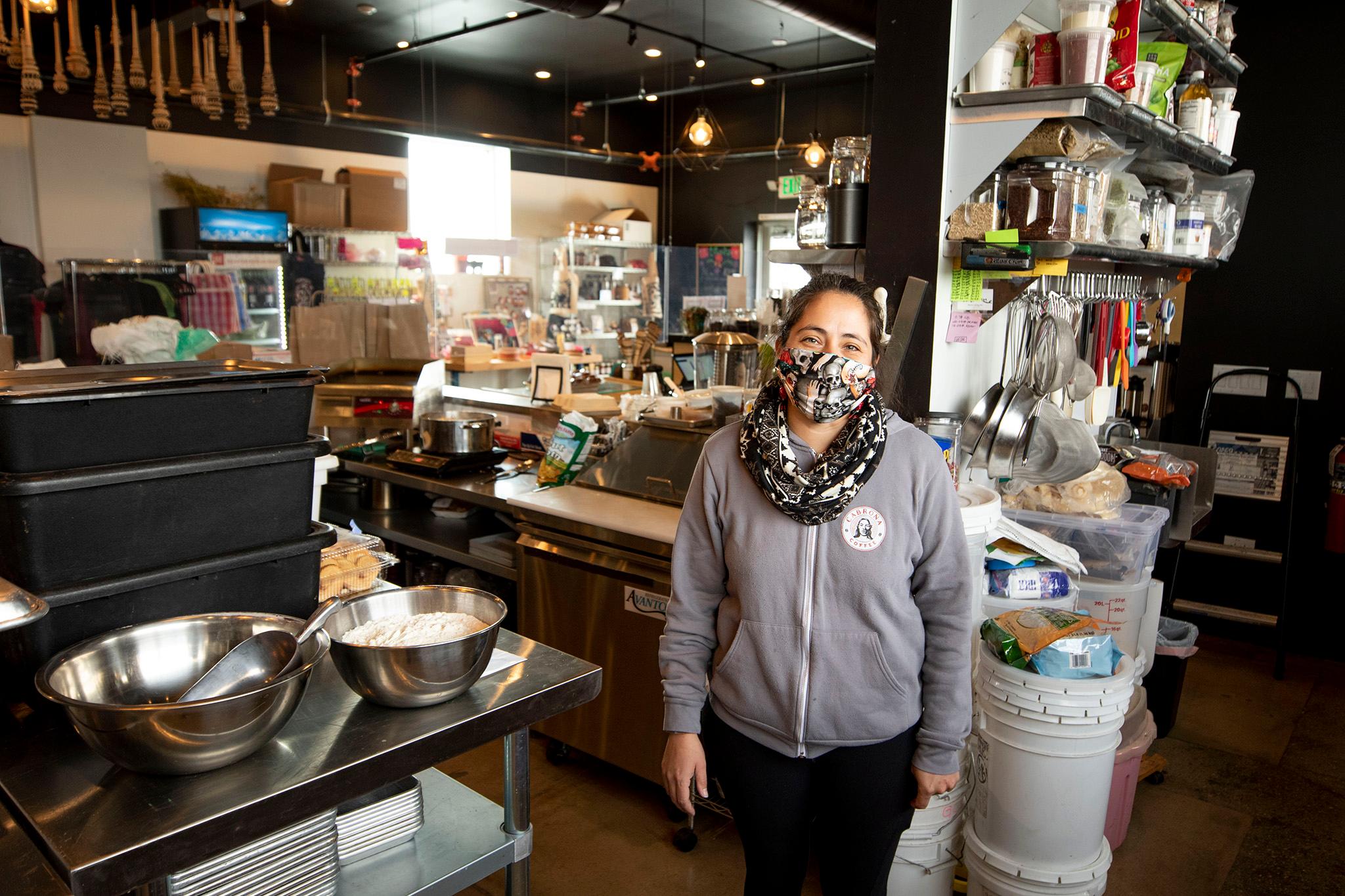
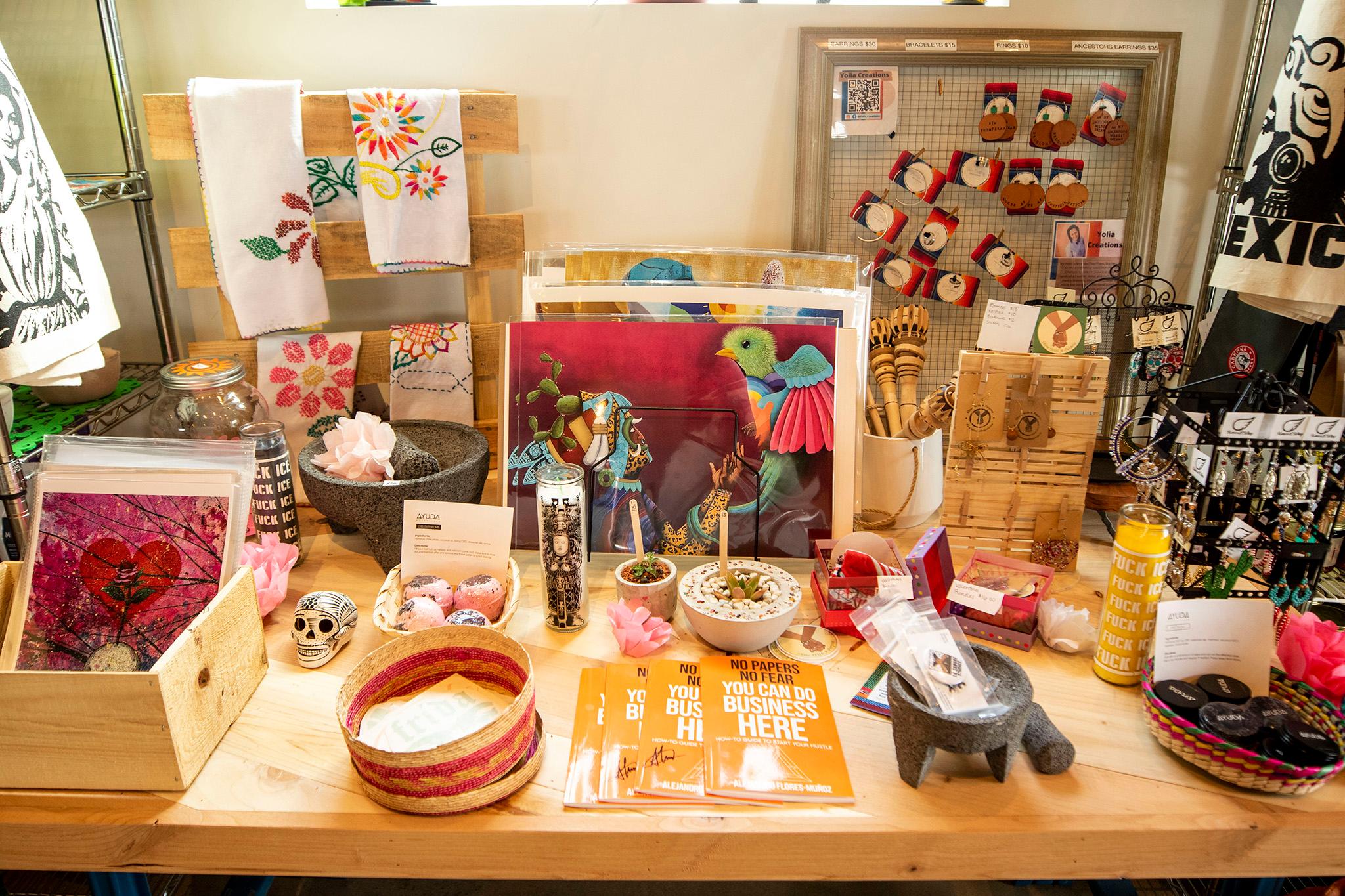
The delay, and the struggle, were reasons why Ronkanen founded the RISE Westwood Collective, an effort to support all of the business owners and artisans in her neighborhood. She launched a website as a clearinghouse for local goods and began sharing information so people could stay afloat. In addition to propping up Cabrona Coffee, she also opened her chocolate shop to people selling candles, jewelry and art.
On her block along Morrison Road, we didn't find any shuttered shops. Ronkanen, Villalobos, Sandoval and Vilchez all benefitted from six-months of relief from rent, passed along by Re:Vision, which got a break on their mortgage. Others, like Bermudez, say their revenues have begun to pick up and can see some light at the end of this long tunnel. But Ronkanen said others in her collective, like a woman who made and sold tortillas down the road, didn't make it.
"We definitely didn't think there were resources available to small businesses. We felt like at least coming together, sharing space, sharing the resources that we did have available to us would make it easier for us to survive during these times," she said. "Some of us haven't survived."

